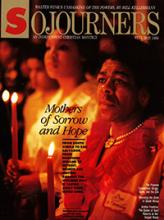On Saturday, February 27, more than 10,000 people from more than 50 regions across the country marched on Atlanta to call on the presidential candidates to make housing the homeless a top priority of the next administration. Among the speakers at the rally sponsored by the National Coalition for the Homeless and the Southern Christian Leadership Conference were the six Democratic candidates in the running at the time. Sen. Albert Gore Jr. (D-Tenn.) and Massachusetts Gov. Michael Dukakis joined the march, which was led by homeless men, women, and children from Atlanta.
Read the Full Article

Already a subscriber? Login
